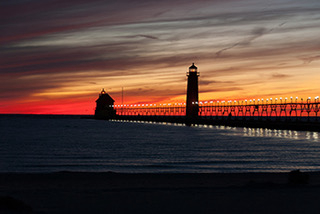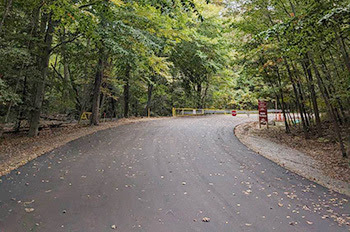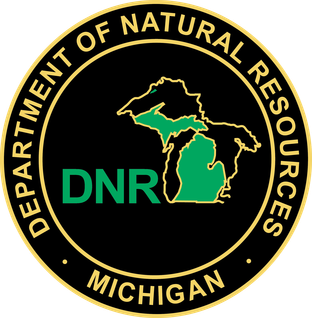Michigan: New EV Charging Station Options at State Parks

Lake Michigan’s scenic coastline and other areas throughout northern Lower Michigan will become more accessible for electric vehicle users this summer with the installation of electric vehicle charging stations at select Michigan state parks.Starting from Warren Dunes State Park in the southwest corner of the Lower Peninsula, north toward beautiful state park destinations at Holland and Grand Haven, Ludington, Orchard Beach, Leelanau and Petoskey on the Lake Michigan shoreline and additional points inland, an estimated total of 30 charging stations are scheduled to be installed beginning in June and continuing throughout the summer.
“This ability to link some of our state parks with electric vehicle travelers will provide a win-win situation for both parties,” said Ron Olson, chief of the Michigan Department of Natural Resources’ Parks and Recreation Division. “The enhancement will no doubt increase the number of visitors at these parks, while providing convenience and significantly increasing the range for EV motorists.”
The rollout of the accessible stations across the state is being done in phases. State parks in the Upper Peninsula are scheduled to be part of the second phase, ideally to take place next year.
The installation will be the latest EV development after Gov. Gretchen Whitmer’s administration announced in 2021 the development of a Lake Michigan EV circuit, amid ongoing efforts to employ green technologies throughout the state, including solar-powered amenities, carbon sequestration and numerous efficiencies.
“The DNR continues to look at innovative ways to sustainably manage our public lands and facilities,” said Scott Whitcomb, the DNR’s director of the Office of Public Lands. “Whether it’s cultivating public/private partnerships to deploy EV charging at state parks or installing solar panels on our offices, the DNR is committed to being part of the solution that leads to a cleaner environment.”
Installing the EV charging stations will also revisit a historic collaboration between Michigan’s state parks and the automobile industry.
Beginning in the 1920s, cars became an increasingly popular form of transportation. This was especially important for park development as people began to travel in their cars to state parks.
After World War II, when car ownership increased further, the interstate highway system brought people, cars and parks closer to each other than ever before. The impact of this accessible road network to parks was significant.
The changes were evident in state road maps. In 1919, the state Legislature authorized the highway department to publish and sell a tourist map. By 1922, that map included state parks. In 1923, the map also contained information on recreational sites, camp sites and ferry schedules.
The popularity of cars and parks grew cooperatively. In 1922, Michigan’s state parks saw a total of nearly a quarter-million visitors, but by 1930, a 40-fold increase had taken place with over 8 million people visiting state parks that year.
Michigan was also one of the first states to introduce roadside parks and recreational areas. Electric vehicle charging stations at state parks will help head both partners toward a promising future.
“As the transition to an electrified mobility future continues to accelerate, innovative initiatives like these are vital to ensuring EVs can be more easily incorporated into our everyday lives, regardless of where you are in the state,” said Trevor Pawl, chief mobility officer with Michigan’s Office of Future Mobility and Electrification. “By identifying creative partnerships and opportunities, we are making significant progress in creating a safer, more equitable and environmentally conscious transportation future for all Michiganders.”
The tentative list of installations includes two EV charging stations at Warren Dunes (Berrien County), P.J. Hoffmaster (Muskegon County), Charles Mears (Oceana County), Ludington (Mason County), Orchard Beach (Manistee County), Leelanau (Leelanau County), Young (Charlevoix County), Petoskey (Emmet County), Wilderness (Emmet County) and Interlochen (Grand Traverse County) state parks, four stations each at Holland and Grand Haven state parks, both in Ottawa County, and two stations at the Oden State Fish Hatchery in Emmet County.
As Michigan continues to welcome travelers to the state, increased access to EV charging stations is one way to continue to bring new leisure travelers to the state.
With tourism one of the industries hit hardest by the impacts of COVID-19, the Lake Michigan EV circuit builds on the continued success of the state’s Pure Michigan campaign to help the industry recover by offering an exciting ecotourism attraction and reducing range anxiety for out-of-state visitors from population centers along Lake Michigan, like Chicago and Milwaukee.
“These EV charging stations are a tremendous way to encourage sustainable travel across our state, while sharing the tremendous beauty and recreation offered by our world-class state parks here in Michigan,” said Dave Lorenz, vice president of Travel Michigan, part of the Michigan Economic Development Corporation. “As we encourage travelers to ‘Pursue their Pure’ this summer, ensuring easy, reliable access to EV charging helps us continue to share these amazing opportunities with new travelers, without range anxiety.”
The National Park Service recently joined the state of Michigan to announce an innovation partnership to promote accessibility to national parks throughout the state. Each park will provide an environment to pilot emerging mobility technologies that will help make national parks across the country safer, more equitable and accessible.
On a national level, similar efforts are also underway with electric vehicle charging stations being installed at scenic, cultural and civic destinations.
Contact: Scott Whitcomb, 231-373-3007





